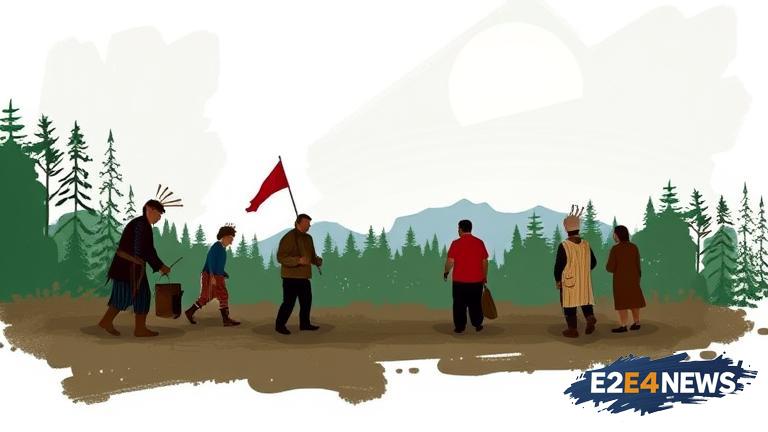Maine’s Governor Janet Mills has pledged to revive the state’s tribal relations board, which has been largely inactive due to a lack of appointed members. The board, established to facilitate communication and cooperation between the state government and Maine’s Native American tribes, has seen most of its seats remain empty. This has hindered the state’s ability to effectively address the needs and concerns of its indigenous communities. Governor Mills’ commitment to reviving the board is a crucial step towards rebuilding and strengthening partnerships with Maine’s tribes. The state’s tribal relations board was created to provide a platform for dialogue and collaboration on issues such as education, healthcare, and economic development. However, the board’s inactivity has led to a sense of disconnection and mistrust among tribal leaders. By reviving the board, Governor Mills aims to reestablish a positive and productive relationship with Maine’s Native American communities. This move is expected to have a significant impact on the state’s ability to address the unique challenges faced by its indigenous populations. The revival of the tribal relations board is also seen as an opportunity to promote greater understanding and awareness of Native American culture and history. Maine is home to several federally recognized tribes, including the Passamaquoddy, Penobscot, and Mi’kmaq. These tribes have a rich and diverse cultural heritage, and their contributions to the state’s history and identity are invaluable. Despite their importance, Maine’s Native American communities have faced numerous challenges, including poverty, poor healthcare outcomes, and limited access to education and economic opportunities. The state’s tribal relations board is crucial in addressing these issues and ensuring that the needs and concerns of indigenous communities are heard and addressed. Governor Mills’ pledge to revive the board is a significant step towards a more inclusive and equitable relationship between the state government and Maine’s Native American tribes. The revival of the board is also expected to have a positive impact on the state’s economy, as it will provide opportunities for collaboration and partnership on economic development projects. Furthermore, the board will play a critical role in promoting cultural awareness and understanding, which is essential for building stronger and more meaningful relationships between the state government and indigenous communities. The state’s tribal relations board will also provide a platform for addressing the historical trauma and injustices faced by Native American communities. This includes the legacy of forced assimilation, land theft, and cultural suppression. By acknowledging and addressing these injustices, the state can work towards healing and reconciliation. The revival of the tribal relations board is a significant step towards a brighter future for Maine’s Native American communities. It is a testament to the state’s commitment to building stronger and more meaningful relationships with its indigenous populations. As the state moves forward with the revival of the board, it is essential to prioritize the needs and concerns of Native American communities. This includes ensuring that the board is comprised of representatives who are knowledgeable about and sensitive to the unique challenges and experiences of indigenous communities. By working together, the state government and Maine’s Native American tribes can build a stronger and more equitable relationship, one that is grounded in mutual respect, trust, and understanding. The revival of the tribal relations board is a significant development in Maine’s efforts to rebuild and strengthen partnerships with its indigenous communities. It is a critical step towards a more inclusive and equitable future, one that recognizes the importance and value of Native American culture and contributions.
